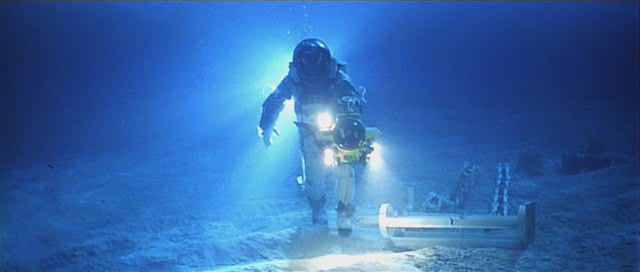Top 10 Films of 2002
- Russian Ark (Aleksandr Sokurov)
- Punch-Drunk Love (Paul Thomas Anderson)
- Adaptation. (Spike Jonze)
- Lord of the Rings: The Two Towers (Peter Jackson)
- Gangs of New York (Martin Scorsese)
- I Am Trying to Break Your Heart (Sam Jones)
- 25th Hour (Spike Lee)
- Femme Fatale (Brian De Palma)
- 28 Days Later (Danny Boyle)
- Blissfully Yours (Apichatpong Weerasenthakul)
Honorable Mentions: Voice of Hope (Maciej J. Drygas), K-19: The Widowmaker (Kathryn Bigelow), Sunshine State (John Sayles), Far From Heaven (Todd Haynes)
Best
Actor
* Nicolas
Cage – Adaptation.
Daniel
Day-Lewis – Gangs of New York
Edward
Norton – 25th Hour
Sam
Rockwell – Confessions of a Dangerous Mind
Adam
Sandler – Punch-Drunk Love
Best
Actress
Kate
Dollenmayer – Funny Ha Ha
Nicole
Kidman – The Hours
* Diane
Lane – Unfaithful
Julianne
Moore – Far From Heaven
Catherine
Zeta-Jones – Chicago
Best
Supporting Actor
Cedric
the Entertainer – Barbershop
Chris
Cooper – Adaptation.
Vincent
D’Onofrio – The Salton Sea
Barry
Pepper – 25th Hour
* Andy
Serkis – Lord of the Rings: The Two Towers
Phillip
Seymour Hoffman – Punch-Drunk Love
Best
Supporting Actress
Toni
Collette – About a Boy
Edie
Falco – Sunshine State
* Julianne
Moore – The Hours
Samantha
Morton – Minority Report
Meryl
Streep – Adaptation.
Emma
Watson – Punch-Drunk Love
Best
Director
Paul
Thomas Anderson – Punch-Drunk Love
Kathryn
Bigelow – K-19: The Widowmaker
Brian De
Palma – Femme Fatale
* Spike
Jonze – Adaptation.
Aleksandr
Sokurov – Russian Ark
Best
Screenplay
* Adaptation. (Charlie Kaufman &
Donald Kaufman)
Catch
Me If You Can
(Jeff Nathanson)
Lord
of the Rings: The Two Towers (Fran Walsh, Philippa Boyens, Stephen Sinclair &
Peter Jackson)
Minority
Report (Scott
Frank & Jon Cohen)
Punch-Drunk
Love (Paul
Thomas Anderson)
Best
Cinematography
Far
From Heaven
(Edward Lachman)
Femme
Fatale (Thierry
Arbogast)
Punch-Drunk
Love (Robert
Elswit)
Road
to Perdition
(Conrad L. Hall)
* Russian
Ark
(Tillman Büttner)
Best
Editing
28
Days Later
(Chris Gill)
Adaptation. (Eric Zumbrunnen)
Femme
Fatale (Bill
Pankow)
* I
Am Trying to Break Your Heart (Erin Nordstrom)
Minority
Report (Michael
Kahn)
Best
Film Score
Far
From Heaven
(Elmer Bernstiein)
* Lord
of the Rings: The Two Towers (Howard Shore)
Punch-Drunk
Love (Jon
Brion)
Best
Production Design
Catch
Me If You Can
CQ
Devdas
Lord
of the Rings: The Two Towers
* Minority
Report
Best
Ensemble Cast Performance
25th
Hour
About
a Boy
* Gangs
of New York
Lord
of the Rings: The Two Towers
Road
to Perdition
2002 Films Seen (63 features as of 03.16.2013)
8 Mile (Curtis Hanson, 2002)
13 Conversations
About One Thing (Jill Sprecher,
2002)
25th Hour (Spike Lee, 2002)
28 Days Later (Danny Boyle, 2002)
About a Boy (Chris Weitz & Paul Weitz, 2002)
About Schmidt (Alexander Payne, 2002)
Adaptation (Spike Jonze, 2002)
Analyze That (Harold Ramis, 2002)
Austin Powers in
Goldmember (Jay Roach, 2002)
Auto Focus (Paul Schrader, 2002)
Barbershop (Tim Story, 2002)
Blissfully Yours (Apichatpong Weerasethakul, 2002)
The Bourne Identity (Doug Liman, 2002)
Bowling for Columbine (Michael Moore, 2002)
Catch Me If You Can (Steven Spielberg, 2002)
Chicago (Rob Marshall, 2002)
City of God (Fernando Meirelles & Kátia Lund, 2002)
Confessions of a
Dangerous Mind (George Clooney,
2002)
The Count of Monte
Cristo (Kevin Reynolds, 2002)
Death to Smoochy (Danny DeVito, 2002)
Devdas (Sanjay Leela Bhansali, 2002)
Die Another Day (Lee Tamahori, 2002)
Divine Secrets of the
Ya-Ya Sisterhood (Callie Khouri,
2002)
Far From Heaven (Todd Haynes, 2002)
Femme Fatale (Brian De Palma, 2002)
Full Frontal (Steven Soderbergh, 2002)
Funny Ha Ha (Andrew Bujalski, 2002)
Gangs of New York (Martin Scorsese, 2002)
The Good Girl (Miguel Arteta, 2002)
The Hours (Stephen Daldry, 2002)
I Am Trying to Break
Your Heart (Sam Jones, 2002)
Ice Age (Chris Wedge & Carlos Saldanha, 2002)
Igby Goes Down (Burr Steers, 2002)
Insomnia (Christopher Nolan, 2002)
K-19: The Widowmaker (Kathryn Bigelow, 2002)
The Kid Stays in the
Picture (Nanette Burstein &
Brett Morgan, 2002)
Left Behind II:
Tribulation Force (Bill
Corcoran, 2002)
Lifeline (Victor Erice, 2002) [10 minute short]
Lord of the Rings:
The Two Towers (Peter Jackson,
2002)
Maid in Manhattan (Wayne Wang, 2002)
Minority Report (Steven Spielberg, 2002)
Mr. Deeds (Steven Brill, 2002)
My Big Fat Greek
Wedding (Joel Zwick, 2002)
One Hour Photo (Mark Romanek, 2002)
Phone Booth (Joel Schumacher, 2002)
The Pianist (Roman Polanski, 2002)
Punch-Drunk Love (Paul Thomas Anderson, 2002)
Red Dragon (Brett Ratner, 2002)
Road to Perdition (Sam Mendes, 2002)
The Rules of
Attraction (Roger Avary, 2002)
Russian Ark (Aleksandr Sokurov, 2002)
The Salton Sea (D.J. Caruso, 2002)
Signs (M. Night Shyamalan, 2002)
Solaris (Steven Soderbergh, 2002)
Spider-Man (Sam Raimi, 2002)
Star Wars: Episode II
– Attack of the Clones (George
Lucas, 2002)
The Sum of All Fears (Phil Alden Robinson, 2002)
Sunshine State (John Sayles, 2002)
Sweet Home Alabama (Andy Tennant, 2002)
Time Changer (Rich Christiano, 2002)
Two Weeks Notice (Marc Lawrence, 2002)
Unfaithful (Adrienne Lyne, 2002)
Voice of Hope (Maciej J. Drygas, 2002)

































